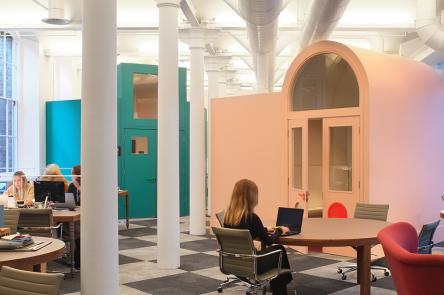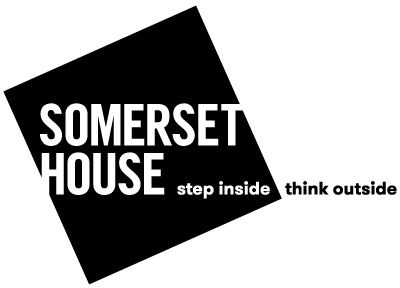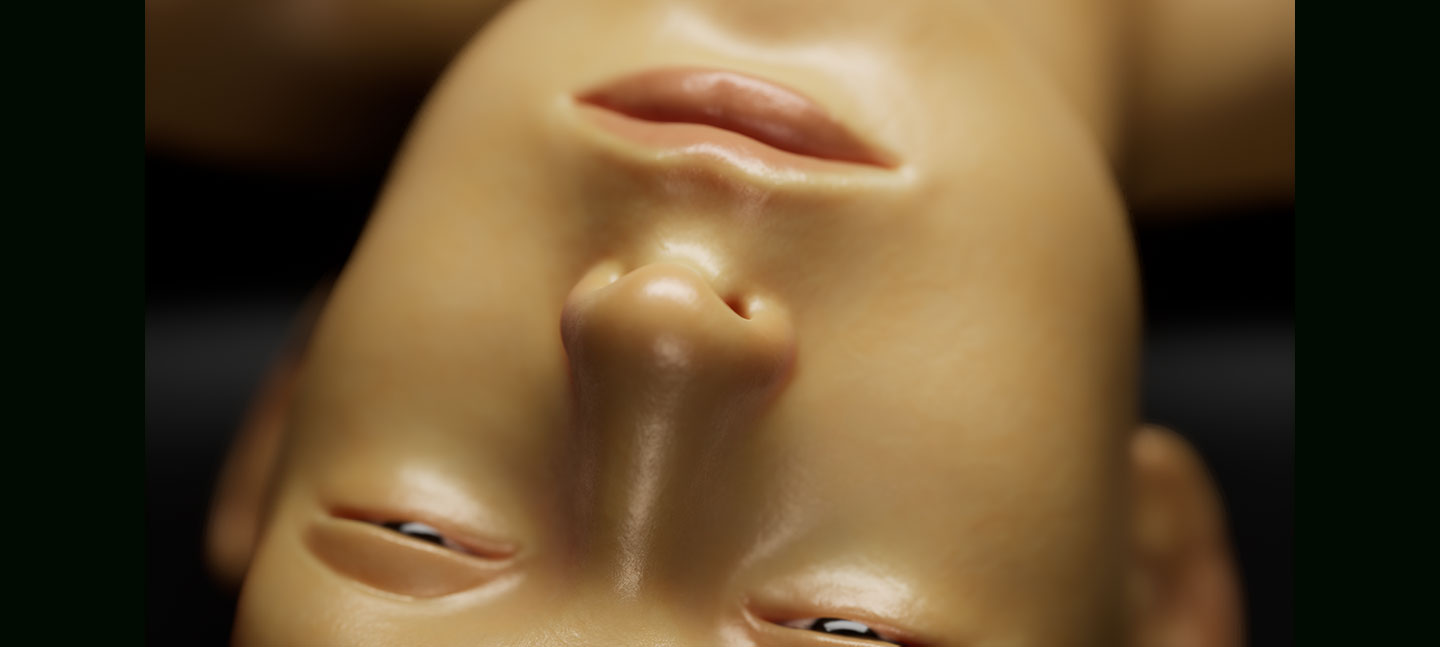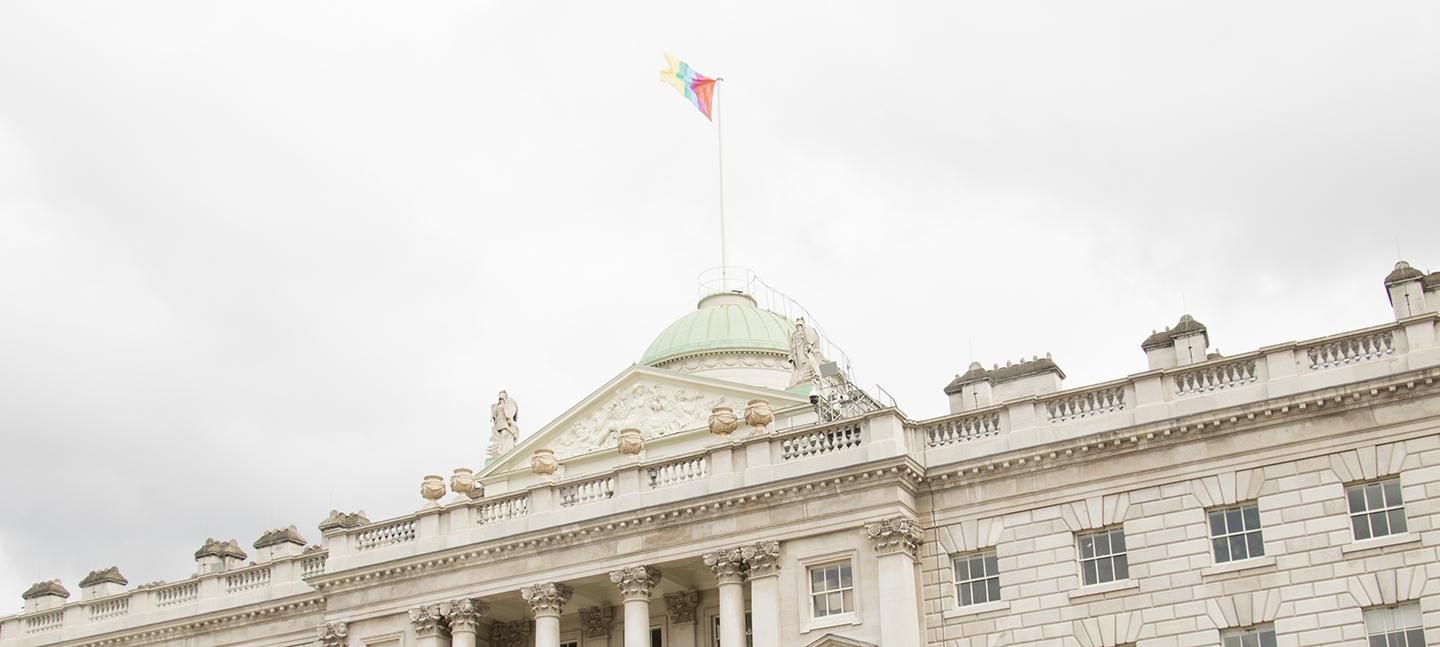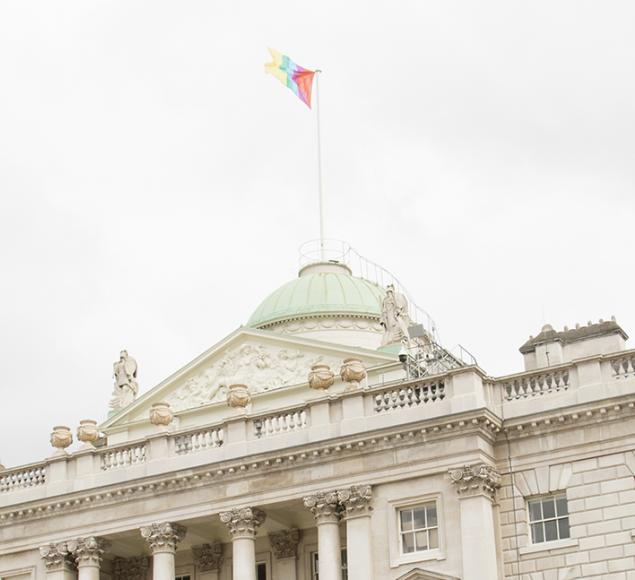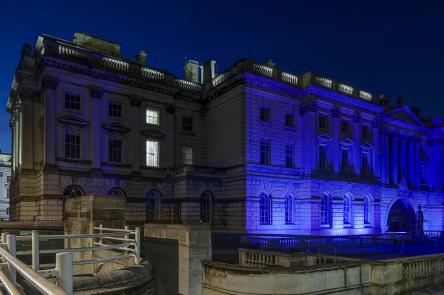RHYANRHYAN-ART
When I got the call to find out that I got the Future Producers role at Somerset House, I knew this was a sign from the universe that this was just the beginning of my journey into creating positive change within my community. If I’m going to be honest, on my first day at Somerset House I felt quite intimidated, simply because of how large the building is. Despite the intimidation, the first day was great because I got to meet the other Future Producers, COMUZI and the Somerset House team in person and Kiki.
The project really began with the tour we got around Somerset House, where we learned about Somerset House’s history and then discussed our initial thoughts with historian Aleema Gray about how we would use this information we learned alongside the digital web experience. However, one of the most interesting things about the tour was there was no mention of Black History at all - the next day we were given an assignment by COMUZI to do research on a point of focus that we wanted to look into after our tour around Somerset House.
Personally, because I LOVE research and presentations - this was a really fun aspect to the project. I looked into the ‘full scope of the absence of Black History at Somerset House’ because I found it interesting that there was a ‘rich’ history of 500 years at Somerset House which parallels slavery and yet there is no mention of Blackness within the institution??!!
My research uncovered interesting facts. In 1837, the Register of Births, Deaths and Marriages was documented at Somerset House - which spanned 130 years, which made me come to the possibility that anyone of Afro-Caribbean heritage would have been registered at Somerset House!
Once we'd presented our research to the Future Producers collective (which was amazing), ideation was the next stage of the programme. Ideation for two days was ALL ABOUT THE IDEAS - this stage was in fact brillant. I loved ideation because it taught me how to think on the spot and collaborate on ideas alongside the collective. We started off with 16 ideas, and managed to condense it down to two by a vote.
Ever since ideation, we’ve been working hard endlessly on developing those ideas in teams, thinking about the logistics, accessibility of the resource and the design, in which we have now recently merged the two ideas together. Currently, we are in the making stages of the digital resource, which I think will be the most challenging part of this programme... but nothing that can’t be done.
The Future Producers programme has really shown me that you shouldn't be afraid to voice your own opinion and to be honest within any working environment. The Somerset House staff and COMUZI have always encouraged us to take the lead, and it perfectly makes so much sense as this society evolves as the generation of Covid-19. So to anyone who is reading, don't hold back, don’t be silent, you'll be fab.
